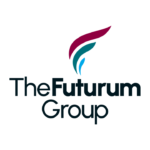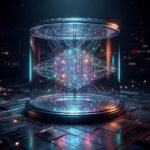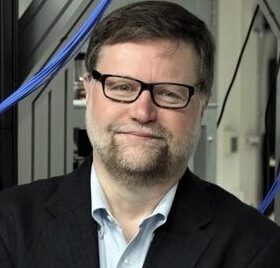A selection of the most important recent news, articles, and papers about quantum computing.

News, Articles, and Analyses
Authors: Jean-François Bobier; Matt Langione; Cassia Naudet-Baulieu; Zheng Cui; and Eitoku Watanabe
“Is quantum computing finally nearing the point where it can fulfill its transformative potential? The answer, right now, is mixed.”
Author: Dr. Bob Sutor
“Learn about market & tech developments in the quantum computing industry in June 2024, including improved qubits and product sales & delivery.”
Technical Papers and Preprints
(Wednesday, June 26, 2024) “A vibrating nanobeam could be used to share information between distant solid-state spin qubits, potentially allowing use of these qubits in complex computations.”
(Thursday, June 27, 2024) “Quantum sensing can benefit from entanglement protocols that can be interpreted as allowing qubits to go backward in time to choose an optimal initial state.”
Authors: Stein, Jonas; Blenninger, Jonas; Bucher, David; Eder, Josef Peter; Çetiner, Elif; Zorn, Maximilian; Linnhoff-Popien, Claudia
 (Wednesday, July 17, 2024) “The Quantum Approximate Optimization Algorithm (QAOA) is a prominent quantum algorithm designed to find approximate solutions to combinatorial optimization problems, which are challenging for classical computers. In the current era, where quantum hardware is constrained by noise and limited qubit availability, simulating the QAOA remains essential for research. However, existing state-of-the-art simulation frameworks suffer from long execution times or lack comprehensive functionality, usability, and versatility, often requiring users to implement essential features themselves. Additionally, these frameworks are primarily restricted to Python, limiting their use in safer and faster languages like Rust, which offer, e.g., advanced parallelization capabilities. In this paper, we develop a GPU accelerated QAOA simulation framework utilizing the NVIDIA CUDA toolkit. This framework offers a complete interface for QAOA simulations, enabling the calculation of (exact) expectation values, direct access to the statevector, fast sampling, and high-performance optimization methods using an advanced state-of-the-art gradient calculation technique. The framework is designed for use in Python and Rust, providing flexibility for integration into a wide range of applications, including those requiring fast algorithm implementations leveraging QAOA at its core. The new framework’s performance is rigorously benchmarked on the MaxCut problem and compared against the current state-of-the-art general-purpose quantum circuit simulation frameworks Qiskit and Pennylane as well as the specialized QAOA simulation tool QOKit. Our evaluation shows that our approach outperforms the existing state-of-the-art solutions in terms of runtime up to multiple orders of magnitude. Our implementation is publicly available at https://github.com/JFLXB/cuaoa and Zenodo.”
(Wednesday, July 17, 2024) “The Quantum Approximate Optimization Algorithm (QAOA) is a prominent quantum algorithm designed to find approximate solutions to combinatorial optimization problems, which are challenging for classical computers. In the current era, where quantum hardware is constrained by noise and limited qubit availability, simulating the QAOA remains essential for research. However, existing state-of-the-art simulation frameworks suffer from long execution times or lack comprehensive functionality, usability, and versatility, often requiring users to implement essential features themselves. Additionally, these frameworks are primarily restricted to Python, limiting their use in safer and faster languages like Rust, which offer, e.g., advanced parallelization capabilities. In this paper, we develop a GPU accelerated QAOA simulation framework utilizing the NVIDIA CUDA toolkit. This framework offers a complete interface for QAOA simulations, enabling the calculation of (exact) expectation values, direct access to the statevector, fast sampling, and high-performance optimization methods using an advanced state-of-the-art gradient calculation technique. The framework is designed for use in Python and Rust, providing flexibility for integration into a wide range of applications, including those requiring fast algorithm implementations leveraging QAOA at its core. The new framework’s performance is rigorously benchmarked on the MaxCut problem and compared against the current state-of-the-art general-purpose quantum circuit simulation frameworks Qiskit and Pennylane as well as the specialized QAOA simulation tool QOKit. Our evaluation shows that our approach outperforms the existing state-of-the-art solutions in terms of runtime up to multiple orders of magnitude. Our implementation is publicly available at https://github.com/JFLXB/cuaoa and Zenodo.”
Authors: Liu, Chen-Yu; Matsuyama, Hiromichi; Huang, Wei-hao; Yamashiro, Yu
 (Thursday, July 18, 2024) “We present novel path-slicing strategies integrated with quantum local search to optimize solutions for the Traveling Salesman Problem (TSP), addressing the limitations of current Noisy Intermediate-Scale Quantum (NISQ) technologies. Our hybrid quantum-classical approach leverages classical path initialization and quantum optimization to effectively manage the computational challenges posed by the TSP. We explore various path slicing methods, including k-means and anti-k-means clustering, to divide the TSP into manageable subproblems. These are then solved using quantum or classical solvers. Our analysis, performed on multiple TSP instances from the TSPlib, demonstrates the ability of our strategies to achieve near-optimal solutions efficiently, highlighting significant improvements in solving efficiency and resource utilization. This approach paves the way for future applications in larger combinatorial optimization scenarios, advancing the field of quantum optimization.”
(Thursday, July 18, 2024) “We present novel path-slicing strategies integrated with quantum local search to optimize solutions for the Traveling Salesman Problem (TSP), addressing the limitations of current Noisy Intermediate-Scale Quantum (NISQ) technologies. Our hybrid quantum-classical approach leverages classical path initialization and quantum optimization to effectively manage the computational challenges posed by the TSP. We explore various path slicing methods, including k-means and anti-k-means clustering, to divide the TSP into manageable subproblems. These are then solved using quantum or classical solvers. Our analysis, performed on multiple TSP instances from the TSPlib, demonstrates the ability of our strategies to achieve near-optimal solutions efficiently, highlighting significant improvements in solving efficiency and resource utilization. This approach paves the way for future applications in larger combinatorial optimization scenarios, advancing the field of quantum optimization.”
Share this:
- Threads
-
Categories Quantum Computing Tags algorithm, CUDA, Futurum Group, NISQ, NVIDIA, physics, Python, QAOA, Qiskit, quantum computing, qubit
A selection of the most important recent news, articles, and papers about AI.

News, Articles, and Analyses
(Friday, July 12, 2024) “Yes, gen AI can be dazzling. But to deliver value, leaders will have to look beyond center stage.”
“Informing product leads and their teams of innovators, designers, and developers as they work toward safety, security, and trust while creating AI products and services for use in education.”
Author: Steven Dickens
“Chief Technology Advisor Steven Dickens shares insights on how IBM uses AI to enhance sports, democratizing innovation through open-source.”
Technical Papers and Preprints
Authors: Ravi, Selvan Sunitha; Mielczarek, Bartosz; Kannappan, Anand; Kiela, Douwe; Qian, Rebecca
 (Thursday, July 11, 2024) “Retrieval Augmented Generation (RAG) techniques aim to mitigate hallucinations in Large Language Models (LLMs). However, LLMs can still produce information that is unsupported or contradictory to the retrieved contexts. We introduce LYNX, a SOTA hallucination detection LLM that is capable of advanced reasoning on challenging real-world hallucination scenarios. To evaluate LYNX, we present HaluBench, a comprehensive hallucination evaluation benchmark, consisting of 15k samples sourced from various real-world domains. Our experiment results show that LYNX outperforms GPT-4o, Claude-3-Sonnet, and closed and open-source LLM-as-a-judge models on HaluBench. We release LYNX, HaluBench and our evaluation code for public access.”
(Thursday, July 11, 2024) “Retrieval Augmented Generation (RAG) techniques aim to mitigate hallucinations in Large Language Models (LLMs). However, LLMs can still produce information that is unsupported or contradictory to the retrieved contexts. We introduce LYNX, a SOTA hallucination detection LLM that is capable of advanced reasoning on challenging real-world hallucination scenarios. To evaluate LYNX, we present HaluBench, a comprehensive hallucination evaluation benchmark, consisting of 15k samples sourced from various real-world domains. Our experiment results show that LYNX outperforms GPT-4o, Claude-3-Sonnet, and closed and open-source LLM-as-a-judge models on HaluBench. We release LYNX, HaluBench and our evaluation code for public access.”
Authors: Woisetschläger, Herbert; Mertel, Simon; Krönke, Christoph; Mayer, Ruben; Jacobsen, Hans-Arno
 (Thursday, July 11, 2024) “The European Union Artificial Intelligence Act mandates clear stakeholder responsibilities in developing and deploying machine learning applications to avoid substantial fines, prioritizing private and secure data processing with data remaining at its origin. Federated Learning (FL) enables the training of generative AI Models across data siloes, sharing only model parameters while improving data security. Since FL is a cooperative learning paradigm, clients and servers naturally share legal responsibility in the FL pipeline. Our work contributes to clarifying the roles of both parties, explains strategies for shifting responsibilities to the server operator, and points out open technical challenges that we must solve to improve FL’s practical applicability under the EU AI Act.”
(Thursday, July 11, 2024) “The European Union Artificial Intelligence Act mandates clear stakeholder responsibilities in developing and deploying machine learning applications to avoid substantial fines, prioritizing private and secure data processing with data remaining at its origin. Federated Learning (FL) enables the training of generative AI Models across data siloes, sharing only model parameters while improving data security. Since FL is a cooperative learning paradigm, clients and servers naturally share legal responsibility in the FL pipeline. Our work contributes to clarifying the roles of both parties, explains strategies for shifting responsibilities to the server operator, and points out open technical challenges that we must solve to improve FL’s practical applicability under the EU AI Act.”
Share this:
A selection of the most important recent news, articles, and papers about quantum computing.

News and Articles
(Wednesday, July 10, 2024) “Researchers at the University of Cologne have achieved a significant breakthrough in quantum materials, potentially setting the stage for advancements in topological superconductivity and robust quantum computing / publication in ‘Nature Physics’”
(Thursday, July 11, 2024) “UK industry and researchers will gain unparalleled access to the world’s most powerful quantum computers.”
(Friday, July 12, 2024) “Bob Sutor; Vice President and Practice Lead, Emerging Technologies, The Futurum Group will speak at IQT Quantum + AI in New York City October 29-30. Dr. Bob Sutor has been a technical leader and executive in the IT industry for over 40 years. He is a theoretical mathematician by training, with a Ph.D. from Princeton”
Technical Papers and Preprints
 (Tuesday, June 25, 2024) “Fast, reliable logical operations are essential for the realization of useful quantum computers, as they are required to implement practical quantum algorithms at large scale. By redundantly encoding logical qubits into many physical qubits and using syndrome measurements to detect and subsequently correct errors, one can achieve very low logical error rates. However, for most practical quantum error correcting (QEC) codes such as the surface code, it is generally believed that due to syndrome extraction errors, multiple extraction rounds — on the order of the code distance d — are required for fault-tolerant computation. Here, we show that contrary to this common belief, fault-tolerant logical operations can be performed with constant time overhead for a broad class of QEC codes, including the surface code with magic state inputs and feed-forward operations, to achieve “algorithmic fault tolerance”. Through the combination of transversal operations and novel strategies for correlated decoding, despite only having access to partial syndrome information, we prove that the deviation from the ideal measurement result distribution can be made exponentially small in the code distance. We supplement this proof with circuit-level simulations in a range of relevant settings, demonstrating the fault tolerance and competitive performance of our approach. Our work sheds new light on the theory of fault tolerance, potentially reducing the space-time cost of practical fault-tolerant quantum computation by orders of magnitude.”
(Tuesday, June 25, 2024) “Fast, reliable logical operations are essential for the realization of useful quantum computers, as they are required to implement practical quantum algorithms at large scale. By redundantly encoding logical qubits into many physical qubits and using syndrome measurements to detect and subsequently correct errors, one can achieve very low logical error rates. However, for most practical quantum error correcting (QEC) codes such as the surface code, it is generally believed that due to syndrome extraction errors, multiple extraction rounds — on the order of the code distance d — are required for fault-tolerant computation. Here, we show that contrary to this common belief, fault-tolerant logical operations can be performed with constant time overhead for a broad class of QEC codes, including the surface code with magic state inputs and feed-forward operations, to achieve “algorithmic fault tolerance”. Through the combination of transversal operations and novel strategies for correlated decoding, despite only having access to partial syndrome information, we prove that the deviation from the ideal measurement result distribution can be made exponentially small in the code distance. We supplement this proof with circuit-level simulations in a range of relevant settings, demonstrating the fault tolerance and competitive performance of our approach. Our work sheds new light on the theory of fault tolerance, potentially reducing the space-time cost of practical fault-tolerant quantum computation by orders of magnitude.”
 (Tuesday, July 02, 2024) “Quantum machine learning has gained considerable attention as quantum technology advances, presenting a promising approach for efficiently learning complex data patterns. Despite this promise, most contemporary quantum methods require significant resources for variational parameter optimization and face issues with vanishing gradients, leading to experiments that are either limited in scale or lack potential for quantum advantage. To address this, we develop a general-purpose, gradient-free, and scalable quantum reservoir learning algorithm that harnesses the quantum dynamics of neutral-atom analog quantum computers to process data. We experimentally implement the algorithm, achieving competitive performance across various categories of machine learning tasks, including binary and multi-class classification, as well as timeseries prediction. Effective and improving learning is observed with increasing system sizes of up to 108 qubits, demonstrating the largest quantum machine learning experiment to date. We further observe comparative quantum kernel advantage in learning tasks by constructing synthetic datasets based on the geometric differences between generated quantum and classical data kernels. Our findings demonstrate the potential of utilizing classically intractable quantum correlations for effective machine learning. We expect these results to stimulate further extensions to different quantum hardware and machine learning paradigms, including early fault-tolerant hardware and generative machine learning tasks.”
(Tuesday, July 02, 2024) “Quantum machine learning has gained considerable attention as quantum technology advances, presenting a promising approach for efficiently learning complex data patterns. Despite this promise, most contemporary quantum methods require significant resources for variational parameter optimization and face issues with vanishing gradients, leading to experiments that are either limited in scale or lack potential for quantum advantage. To address this, we develop a general-purpose, gradient-free, and scalable quantum reservoir learning algorithm that harnesses the quantum dynamics of neutral-atom analog quantum computers to process data. We experimentally implement the algorithm, achieving competitive performance across various categories of machine learning tasks, including binary and multi-class classification, as well as timeseries prediction. Effective and improving learning is observed with increasing system sizes of up to 108 qubits, demonstrating the largest quantum machine learning experiment to date. We further observe comparative quantum kernel advantage in learning tasks by constructing synthetic datasets based on the geometric differences between generated quantum and classical data kernels. Our findings demonstrate the potential of utilizing classically intractable quantum correlations for effective machine learning. We expect these results to stimulate further extensions to different quantum hardware and machine learning paradigms, including early fault-tolerant hardware and generative machine learning tasks.”
 (Tuesday, July 09, 2024) “Quantum computing is an emerging field on the multidisciplinary interface between physics, engineering, and computer science with the potential to make a large impact on computational intelligence (CI). The aim of this paper is to introduce quantum approximate optimization methods to the CI community because of direct relevance to solving combinatorial problems. We introduce quantum computing and variational quantum algorithms (VQAs). VQAs are an effective method for the near-term implementation of quantum solutions on noisy intermediate-scale quantum (NISQ) devices with less reliable qubits and early-stage error correction. Then, we explain Farhi et al.’s quantum approximate optimization algorithm (Farhi’s QAOA, to prevent confusion). This VQA is generalized by Hadfield et al. to the quantum alternating operator ansatz (QAOA), which is a nature-inspired (particularly, adiabatic) quantum metaheuristic for approximately solving combinatorial optimization problems on gate-based quantum computers. We discuss connections of QAOA to relevant domains, such as computational learning theory and genetic algorithms, discussing current techniques and known results regarding hybrid quantum-classical intelligence systems. We present a schematic of how QAOA is constructed, and also discuss how CI techniques can be used to improve QAOA. We conclude with QAOA implementations for the well-known maximum cut, maximum bisection, and traveling salesperson problems, which can serve as templates for CI practitioners interested in using QAOA.”
(Tuesday, July 09, 2024) “Quantum computing is an emerging field on the multidisciplinary interface between physics, engineering, and computer science with the potential to make a large impact on computational intelligence (CI). The aim of this paper is to introduce quantum approximate optimization methods to the CI community because of direct relevance to solving combinatorial problems. We introduce quantum computing and variational quantum algorithms (VQAs). VQAs are an effective method for the near-term implementation of quantum solutions on noisy intermediate-scale quantum (NISQ) devices with less reliable qubits and early-stage error correction. Then, we explain Farhi et al.’s quantum approximate optimization algorithm (Farhi’s QAOA, to prevent confusion). This VQA is generalized by Hadfield et al. to the quantum alternating operator ansatz (QAOA), which is a nature-inspired (particularly, adiabatic) quantum metaheuristic for approximately solving combinatorial optimization problems on gate-based quantum computers. We discuss connections of QAOA to relevant domains, such as computational learning theory and genetic algorithms, discussing current techniques and known results regarding hybrid quantum-classical intelligence systems. We present a schematic of how QAOA is constructed, and also discuss how CI techniques can be used to improve QAOA. We conclude with QAOA implementations for the well-known maximum cut, maximum bisection, and traveling salesperson problems, which can serve as templates for CI practitioners interested in using QAOA.”
 (Wednesday, July 10, 2024) “The central challenge of quantum computing is implementing high-fidelity quantum gates at scale. However, many existing approaches to qubit control suffer from a scale-performance trade-off, impeding progress towards the creation of useful devices. Here, we present a vision for an electronically controlled trapped-ion quantum computer that alleviates this bottleneck. Our architecture utilizes shared current-carrying traces and local tuning electrodes in a microfabricated chip to perform quantum gates with low noise and crosstalk regardless of device size. To verify our approach, we experimentally demonstrate low-noise site-selective single- and two-qubit gates in a seven-zone ion trap that can control up to 10 qubits. We implement electronic single-qubit gates with 99.99916(7
(Wednesday, July 10, 2024) “The central challenge of quantum computing is implementing high-fidelity quantum gates at scale. However, many existing approaches to qubit control suffer from a scale-performance trade-off, impeding progress towards the creation of useful devices. Here, we present a vision for an electronically controlled trapped-ion quantum computer that alleviates this bottleneck. Our architecture utilizes shared current-carrying traces and local tuning electrodes in a microfabricated chip to perform quantum gates with low noise and crosstalk regardless of device size. To verify our approach, we experimentally demonstrate low-noise site-selective single- and two-qubit gates in a seven-zone ion trap that can control up to 10 qubits. We implement electronic single-qubit gates with 99.99916(7
Share this:
- Threads
-
Categories Quantum Computing Tags AI, algorithm, computer science, error correction, Futurum Group, machine learning, NISQ, physics, QAOA, quantum computing, qubit, space, trapped ion

“Learn which quantum computing companies have recently replaced their CEOs & reasons Boards of Directors make such changes.”
“Learn about a study in France that will look at the energy efficiency of quantum computing systems versus HPC for well-known algorithms.”
Share this:
A selection of the most important recent news and articles about #quantumcomputing.

(Thursday, May 09, 2024) “The characterization of a quantum device is a crucial step in the development of quantum experiments. This is accomplished via Quantum Process Tomography, which combines the outcomes of different projective measurements to deliver a possible reconstruction of the underlying process. The tomography is typically performed by processing an overcomplete set of measurements and extracting the process matrix from maximum-likelihood estimation. Here, we introduce Fourier Quantum Process Tomography, a technique which requires a reduced number of measurements, and benchmark its performance against the standard maximum-likelihood approach. Fourier Quantum Process Tomography is based on measuring probability distributions in two conjugate spaces for different state preparations and projections. Exploiting the concept of phase retrieval, our scheme achieves a complete and robust characterization of the setup by processing a near-minimal set of measurements. We experimentally test the technique on different space-dependent polarization transformations, reporting average fidelities higher than 90% and significant computational advantage.”
(Sunday, May 12, 2024) “Building a useful quantum computer in practice is incredibly challenging. Significant improvements are needed in the scale, fidelity, speed, reliability, and programmability of quantum computers to…”
(Thursday, July 11, 2024) “/PRNewswire/ — Kipu Quantum, the worldwide leading quantum software company, announced today the strategic acquisition of PlanQK, the German quantum computing…”
“Scalable techniques for quantum simulations of high-energy physics.”
“Learn which quantum computing companies have recently replaced their CEOs & reasons Boards of Directors make such changes.”
“PARIS, July 10, 2024 — French electric utility company EDF, in collaboration with quantum computing firms Quandela and Alice & Bob, and the French National Centre for Scientific Research (CNRS), has […]”
“Learn about a study in France that will look at the energy efficiency of quantum computing systems versus HPC for well-known algorithms.”
“Oxford Ionics has demonstrated the highest performing quantum chip in the world, which can be produced at scale in a standard semiconductor fabrication plant.”
Share this:
- Threads
-
Categories Quantum Computing Tags AI, algorithm, benchmark, France, Futurum Group, IBM, NVIDIA, Oxford Ionics, physics, quantum computing, space
Time to give this advisor and analyst role a try …
 (Sunday, July 21, 2024) “Large language models based on the transformer architectures can solve highly complex tasks. But are there simple tasks that such models cannot solve? Here we focus on very simple counting tasks, that involve counting how many times a token in the vocabulary have appeared in a string. We show that if the dimension of the transformer state is linear in the context length, this task can be solved. However, the solution we propose does not scale beyond this limit, and we provide theoretical arguments for why it is likely impossible for a size limited transformer to implement this task. Our empirical results demonstrate the same phase-transition in performance, as anticipated by the theoretical argument. Our results demonstrate the importance of understanding how transformers can solve simple tasks.”
(Sunday, July 21, 2024) “Large language models based on the transformer architectures can solve highly complex tasks. But are there simple tasks that such models cannot solve? Here we focus on very simple counting tasks, that involve counting how many times a token in the vocabulary have appeared in a string. We show that if the dimension of the transformer state is linear in the context length, this task can be solved. However, the solution we propose does not scale beyond this limit, and we provide theoretical arguments for why it is likely impossible for a size limited transformer to implement this task. Our empirical results demonstrate the same phase-transition in performance, as anticipated by the theoretical argument. Our results demonstrate the importance of understanding how transformers can solve simple tasks.” (Monday, July 22, 2024) “Artificial Intelligence (AI) is one of today’s most relevant emergent technologies. In view thereof, this paper proposes that more attention should be paid to the philosophical aspects of AI technology and its use. It is argued that this deficit is generally combined with philosophical misconceptions about the growth of knowledge. To identify these misconceptions, reference is made to the ideas of the philosopher of science Karl Popper and the physicist David Deutsch. The works of both thinkers aim against mistaken theories of knowledge, such as inductivism, empiricism, and instrumentalism. This paper shows that these theories bear similarities to how current AI technology operates. It also shows that these theories are very much alive in the (public) discourse on AI, often called Bayesianism. In line with Popper and Deutsch, it is proposed that all these theories are based on mistaken philosophies of knowledge. This includes an analysis of the implications of these mistaken philosophies for the use of AI in science and society, including some of the likely problem situations that will arise. This paper finally provides a realistic outlook on Artificial General Intelligence (AGI) and three propositions on A(G)I and philosophy (i.e., epistemology).”
(Monday, July 22, 2024) “Artificial Intelligence (AI) is one of today’s most relevant emergent technologies. In view thereof, this paper proposes that more attention should be paid to the philosophical aspects of AI technology and its use. It is argued that this deficit is generally combined with philosophical misconceptions about the growth of knowledge. To identify these misconceptions, reference is made to the ideas of the philosopher of science Karl Popper and the physicist David Deutsch. The works of both thinkers aim against mistaken theories of knowledge, such as inductivism, empiricism, and instrumentalism. This paper shows that these theories bear similarities to how current AI technology operates. It also shows that these theories are very much alive in the (public) discourse on AI, often called Bayesianism. In line with Popper and Deutsch, it is proposed that all these theories are based on mistaken philosophies of knowledge. This includes an analysis of the implications of these mistaken philosophies for the use of AI in science and society, including some of the likely problem situations that will arise. This paper finally provides a realistic outlook on Artificial General Intelligence (AGI) and three propositions on A(G)I and philosophy (i.e., epistemology).” (Monday, July 22, 2024) “We introduce LLMmap, a first-generation fingerprinting attack targeted at LLM-integrated applications. LLMmap employs an active fingerprinting approach, sending carefully crafted queries to the application and analyzing the responses to identify the specific LLM model in use. With as few as 8 interactions, LLMmap can accurately identify LLMs with over 95% accuracy. More importantly, LLMmap is designed to be robust across different application layers, allowing it to identify LLMs operating under various system prompts, stochastic sampling hyperparameters, and even complex generation frameworks such as RAG or Chain-of-Thought.”
(Monday, July 22, 2024) “We introduce LLMmap, a first-generation fingerprinting attack targeted at LLM-integrated applications. LLMmap employs an active fingerprinting approach, sending carefully crafted queries to the application and analyzing the responses to identify the specific LLM model in use. With as few as 8 interactions, LLMmap can accurately identify LLMs with over 95% accuracy. More importantly, LLMmap is designed to be robust across different application layers, allowing it to identify LLMs operating under various system prompts, stochastic sampling hyperparameters, and even complex generation frameworks such as RAG or Chain-of-Thought.”




